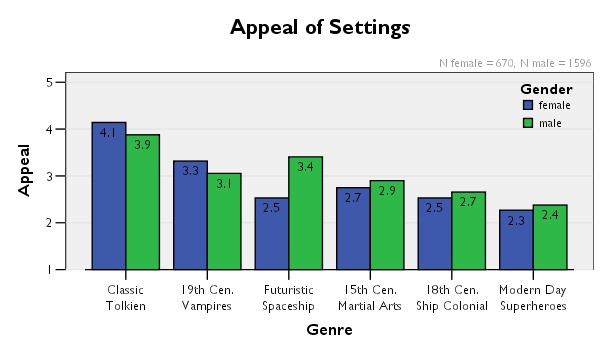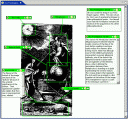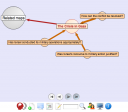A student in my Computers and Culture class drew our attention to the DAEDALUS PROJECT which is led by Nick Yee at PARC. The Daedalus Project is a blog about MMORG research with longish entries written like short articles that are gathered into issues. There is also The Daedalus Gateway that organizes the articles in a more thematic fashion.
The articles are fascinating. The graph immediately above was taken from a study on Game Choices that looks at what sorts of characters players choose.
Many of the articles on The Daedalus Project are based on voluntary surveys (see his methodology). It is impressive that Yee is getting between 2000 and 4000 respondents and there is something to be learned by how he returns results, informs people of the survey and so on. I feel that The Daedalus Project represents some sort of new paradigm that crosses method, publication, and outreach.








